Deep Conditioning For Hair At Home: 11 Moisturizing Treatments
Revitalize your damaged hair and restore its health with some amazing tried and tested methods.

Image: shutterstock
Healthy hair is often looked at as something you either have or you don’t. Issues like dryness, frizz, and damage are considered as a disadvantage of having a certain type of hair. While it is true that some hair types are more prone to drying out and frizzing up, there isn’t much that the right kind of hair care won’t tackle. Deep conditioning for hair at home is one of the best ways by which you could treat your hair with natural ingredients.
Lesley, a blogger, shared her personal deep conditioning routine on her blog. Emphasizing its importance, she writes, “Deep conditioning is one of those parts of my hair [care] routine which I will not compromise on, no matter how tired or lazy I’m feeling. I really do believe that deep conditioning regularly is one of the key aspects of keeping chemically treated, relaxed or dry hair in good condition (i).”
There are many deep conditioning treatments you can try at home that are bound to improve the health of your hair. Regardless of your hair type, the leading cause of bad hair, more often than not, is the lack of moisture. Following is a list of 11 DIY deep conditioning treatments that are totally affordable and contain ingredients that are probably already in your kitchen.
In This Article
Deep Conditioning Treatments That Really Work
- Deep Conditioning With Shea Butter
- Deep Conditioning With Tea Tree Oil
- Deep Conditioning With Yogurt
- Deep Conditioning With Aloe Vera
- Deep Conditioning With Conditioner
- Deep Conditioning With Honey
- Deep Conditioning With Grapeseed Oil
- Deep Conditioning With Jamaican Black Castor Oil
- Hot Oil Therapy
- Using Henna For Deep Conditioning
Key Takeaways
- Deep conditioning treatments are needed to make dry and frizzy hair more manageable and return its lost moisture.
- Deep condition your hair at least once every week to retain your healthy, strong, and vibrant hair.
- Avoid store-bought conditioning treatments as DIY treatments can give the same results without any chemicals.
- You should apply both protein and moisture-based treatments or you might end up with hair that is either too breakable or too frizzy.
Deep Conditioning Your Hair At Home
Whether your hair is curly, straight, dry, or oily, a weekly deep conditioning and moisturizing treatment is highly recommended. Not only does the treatment make your hair more manageable, but the extra hair hydration keeps your sebaceous glandsi Glands present in the skin that release an oily/waxy substance called sebum. in check, ensuring that an optimum amount of sebum is produced. While both oil and water-based conditioning treatments work well for dry hair, a water-based deep conditioning treatment is recommended for greasy hair.
1. Deep Conditioning With Shea Butter
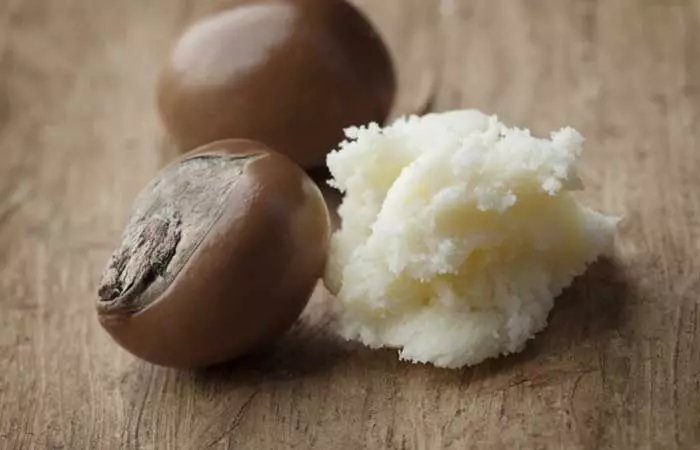
Method
- Apply shea butter from the roots to the tips of your hair. If you have an oily scalp and dry hair, you can apply it from the mid-lengths to the tips.
- Once all of your hair is coated with the shea butter, cover it with a hot towel. You can heat the towel by using a blow dryer on the hot setting.
- Keep the towel wrapped around your hair for an hour.
- Wash and condition your hair.
How Often
If you have dry hair, you can treat your hair with shea butter up to three times a week.
If you have oily hair, use shea butter as a deep conditioner once a week.
Benefits Of Using This Recipe
Shea butter is rich in saturated fatsi A type of dietary fat that remains solid at room temperature. and fatty acidsi The building blocks of fat in the food and body. that nourish and condition hair. It is known for its emollient properties that lock the moisture in your hair shafts (1). It also provides protection from the ultraviolet rays of the sun. This butter has long been used as a hair care ingredient by African women to manage their natural curls.
Precautions
- Ensure that you wash the shea butter out of your hair well.
- Do not apply the butter to your roots if you have oily or combination hair.
 Fun Fact
Fun Fact2. Deep Conditioning With Tea Tree Oil
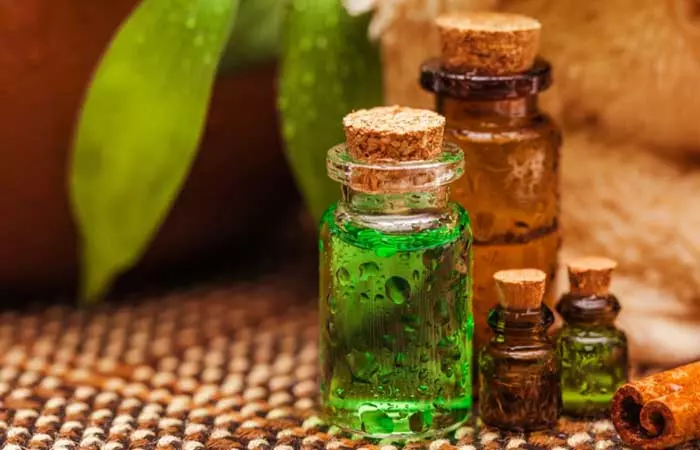
Method
- Take 3-5 drops of tea tree oil and add it to 3 tablespoons of cold-pressed coconut oil.
- Stir with a spoon to mix the two oils.
- Section your hair and start applying the oil mixture on the roots, along the length of your hair, and the tips.
- Massage the oil into your scalp for 10 minutes and then braid your hair or put it up in a bun.
- Sleep with the oil in your hair. The next morning, wash it out with shampoo and condition.
How Often
You can apply this mixture to your hair 2-3 times a week if you have dry hair.
For oily hair, once a week will be sufficient.
Benefits Of Using This Recipe
Tea tree oil is renowned for the soothing effect it has on the scalp. This is due to its anti-inflammatory and anti-microbial properties (2). It is the perfect solution for dandruff, especially for people with oily hair. It unclogs the hair follicles and improves blood circulation, which aids healthy hair growth and may support hair regeneration. Combining tea tree oil with the moisturizing properties of coconut oil will give you the perfect deep conditioning treatment that also helps maintain the health of your scalp.
Precautions
While buying your ingredients, ensure that you get organic cold-pressed coconut oil as it contains more nutrients than oils that have been extracted with heat.
3. Deep Conditioning With Yogurt
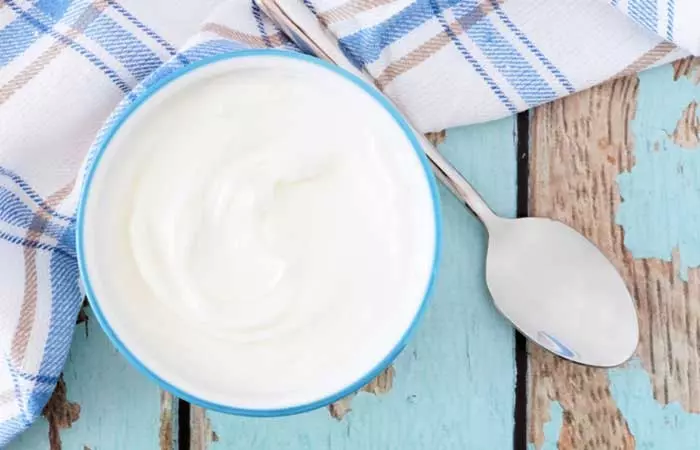
Method
- Wash your hair with shampoo; skip conditioning.
- Once your hair is almost dry, start applying yogurt along the length of your hair, from the roots to the tips.
- Let the yogurt sit in your hair for 30 minutes to an hour.
- Rinse it out with lukewarm water.
How Often
You can apply this deep conditioning yogurt mask to your hair twice a week. It is perfect for people with oily hair.
Benefits Of Using Yogurt For Deep Conditioning
Yogurt has a rich content of lactic acid which helps exfoliate the scalp gently.
It also smooths down the hair shafts, giving you frizz-free hair. This is the perfect deep conditioner for people with oily hair as yogurt exfoliates your scalp, tightens the hair follicles, and controls sebum production. It is commonly used in India to add shine to dull hair, keep the scalp healthy, and treat dandruff (3). It also makes hair more manageable. You can also use Greek yogurt instead of normal yogurt to give your hair a protein boost. Greek yogurt contains twice the amount of protein that regular yogurt contains.
Precautions
Always clean your hair before applying the yogurt hair pack to ensure that there is no buildup of dirt that is keeping the nutrients from being absorbed.
4. Deep Conditioning With Aloe Vera
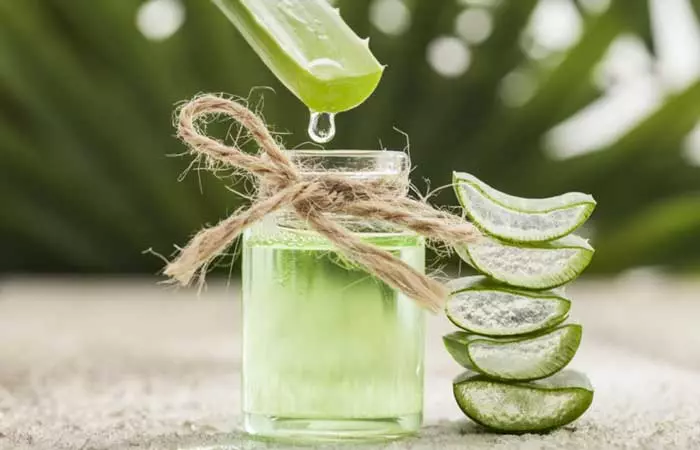
Method
- Cut an aloe vera leaf and extract about 1/2 a cup or more gel (depending on the length of your hair) with a spoon.
- Blend the gel until it gets to a smooth consistency.
- Wash your hair with shampoo. Skip conditioning.
- While your hair is still damp, start applying the aloe vera gel to your hair from the roots to the tips.
- Let the gel sit in your hair for about 30 minutes.
- Rinse your hair out with lukewarm water.
How Often
Apply aloe vera to your hair once a week for best results.
Benefits Of Using Aloe Vera For Deep Conditioning
Aloe vera is 95% water and is an emollient that locks moisture in your hair shafts
(4). Rubbing the gel into your scalp is also said to prevent hair loss and promote healthy hair growth. Regular use of aloe vera is bound to give you hair that is thick and lustrous. Its anti-inflammatory properties are also good for maintaining the health of your scalp and controlling issues such as dandruff.
Precautions
Do not use water that is too warm to rinse your hair as this will strip it of moisture.
5. Mayonnaise And Egg Deep Conditioner
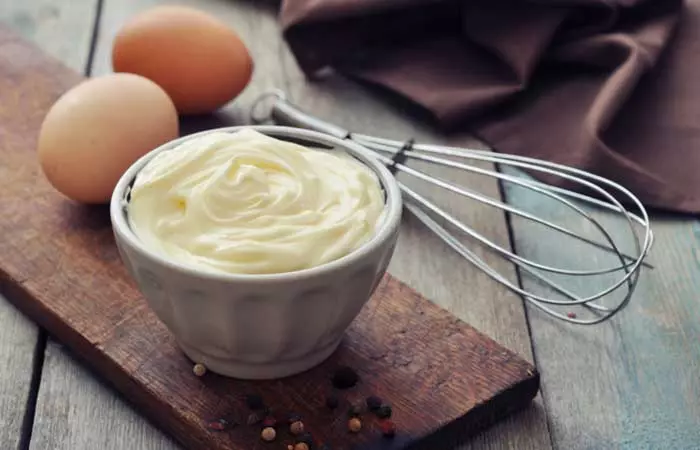
Method
- Mix half a cup of mayonnaise with 1 egg and 1 tablespoon of olive oil in a bowl. You may double the ingredients if your hair is very long.
- Shampoo your hair and skip conditioning.
- Once your hair is almost dry, section it and start applying the mixture from the roots to the tips.
- Put your hair up in a bun and cover it with a shower cap or a moist hot towel.
- Keep the pack on for 20-30 minutes and then rinse it off with shampoo and lukewarm water. Skip conditioning if you have oily hair.
How Often
Treat your hair with this deep conditioning hair pack once a week for best results.
Benefits Of Using This Recipe
Eggs are loaded with proteins, which make for the best kind of food for your hair since it’s what your hair is made up of. It also contains Vitamin B and biotin, which are essential nutrients that prevent hair loss. Moreover, animal studies found that topical application of egg peptides may boost hair growth (5). Mayonnaise contains the goodness of eggs, fatty oils that nourish your hair and give it sheen, and vinegar which helps clean buildup from your hair. These, in combination with the conditioning properties of olive oil, make for the ultimate hair conditioning treatment.
Precautions
This pack can weigh oily hair down and make the grease problem worse. If you have oily hair, substitute the mayonnaise and olive oil with yogurt and the juice of half a lemon.
6. Deep Conditioning With Honey
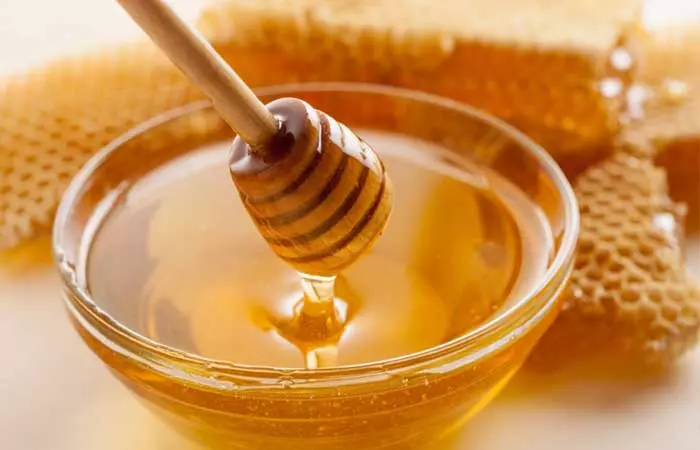
Honey can be used in combination with various ingredients for conditioning your hair. Below are three deep conditioning recipes that contain honey.
Honey And Avocado
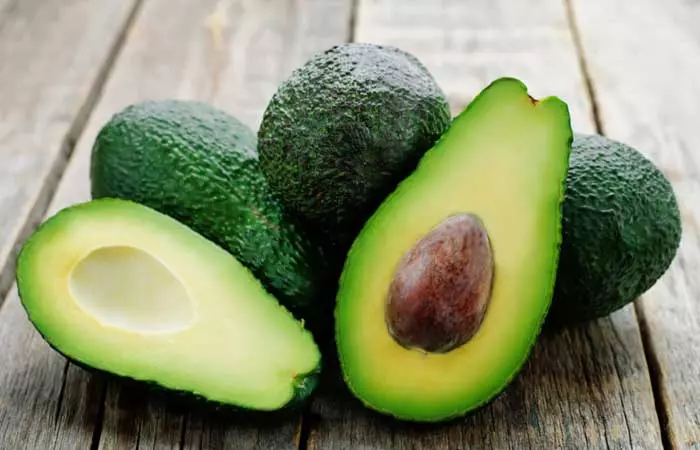
Method
- Mash one ripe avocado and add 2 tablespoons of raw honey to it. Ensure that there are no lumps. Mix it until it gets to a smooth consistency.
- Wash your hair with shampoo and skip conditioning. Let your hair air dry.
- Once your hair is dry, start applying the honey-avocado mixture from the roots to the tips of your hair.
- Let it sit for 30 minutes to an hour and then wash it off with shampoo and condition.
Note:
You can also try preparing different DIY avocado hair masks with a variety of ingredients to nourish and improve damaged hair.
 Trivia
TriviaHoney And Olive Oil
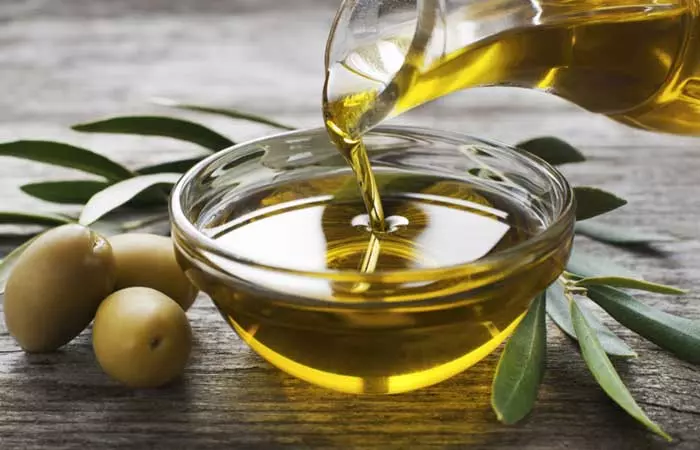
- Take 2 tablespoons of raw honey and mix it with 2 tablespoons of olive oil.
- Wash your hair with shampoo and skip conditioning. Let it air dry.
- Once your hair is completely dry, start applying the honey-olive oil mixture to it from the roots to the tips.
- Put your hair up in a bun, or in braids, and wait for 30 minutes to an hour.
- Wash with shampoo and condition.
Coconut Oil And Honey
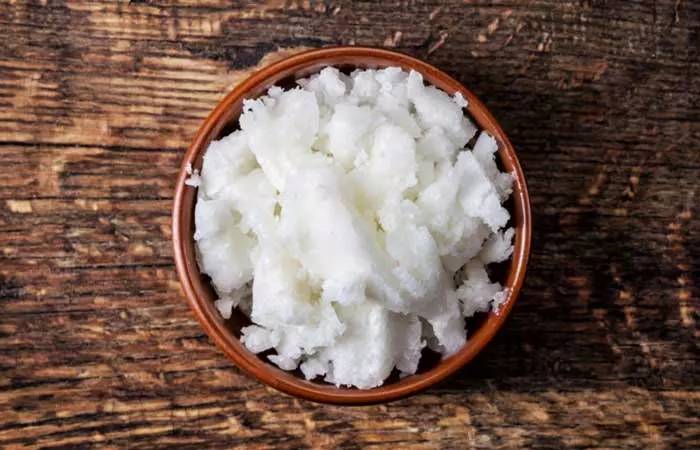
- Take 2 tablespoons of coconut oil and to it add 1 tablespoon of raw honey and apple cider vinegar each.
- Start applying the mixture to your hair from the roots to the tips.
- Once all of your hair is covered, put your hair up in a bun and let it sit for 30 minutes.
- Rinse with shampoo and condition.
How Often
Use the pack best suited to your hair once a week for best results.
Benefits Of Using These Deep Conditioning Honey Hair Packs
Honey is a humectant, which means that it improves your hair’s ability to retain moisture (6). When it is combined with different moisturizing treatments and ingredients, it boosts their ability to nourish and condition your hair. It acts as a natural hair repair treatment. You can choose what ingredients to use in your deep conditioning honey hair pack depending on your hair type and issue.
- Avocado is rich in fatty oils that nourish and condition your hair. It is the perfect ingredient for hair that is dry, damaged, and lusterless.
- Olive oil is light and does not weigh your hair down. It is a natural conditioner, which works well when used with honey. This is the perfect hair pack for people whose hair tends to be oily.
- Coconut oil is known for its penetrative properties that nourish and moisturize the hair shafts from the inside. Apple cider vinegar, on the other hand, is an amazing cleanser that removes the build up of dirt and grime. Using these ingredients in combination with honey makes for the perfect deep conditioning hair pack for combination hair.
Precautions
- Wear a towel around your shoulders to cover your shirt as these hair packs can get messy.
- Honey is a natural bleach so do not use it very often if you do not want to add natural highlights to your hair.
7. Deep Conditioning With Grapeseed Oil
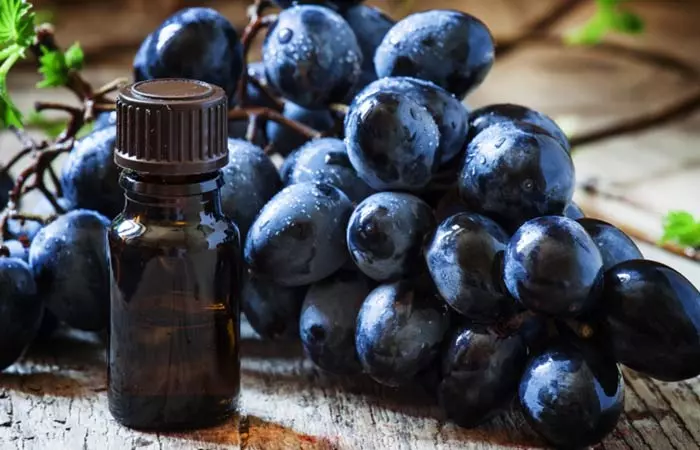
Method
- Take 3-4 tablespoons of grapeseed oil, depending on the length of your hair, and pour it into a plastic zip lock bag.
- Ensure that the bag is sealed properly. Immerse it into hot water to let the oil warm up.
- Wash your hair with shampoo.
- Once your hair is completely dry, start applying the oil from the roots of your hair to the tips.
- When your hair and scalp and completely covered in oil, wrap a damp hot towel around your head.
- Let this sit for 20-30 minutes and then shampoo and a regular or leave-in conditioner.
How Often
You can repeat this treatment twice a week.
Benefits Of Using Grapeseed Oil As A Deep Conditioning Treatment
Grapeseed oil is rich in linoleic oil and Vitamin E, which is a great antioxidant and an emollient (7). The antioxidants help battle free radicals that damage your hair while the emollient properties help seal moisture in your hair shaft. This soothing scalp treatment may help treat dandruff and smoothen the hair shaft, preventing issues like frizz, splitting, and breakage.
Precautions
- Ensure that the water is not so hot that it melts the bag.
- Do not overheat the oil as you can end up burning your scalp.
8. Deep Conditioning With Jamaican Black Castor Oil
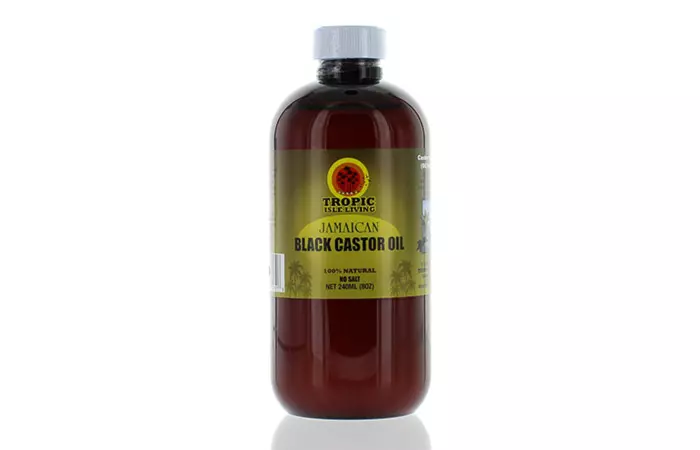
Method
- Take 3-4 tablespoons of Jamaican Black Castor Oil, depending on the length of your hair.
- Section clean, dry hair and start applying the oil from the roots to the tips.
- Because of how sticky the oil is, this might take a bit of effort. Ensure that all of your hair is well coated.
- Put your hair up in a bun or wear it in braids. Let the oil sit in your hair overnight.
- Wash the oil out of your hair the next morning. Dilute your shampoo and use it twice to make sure that you get all of the oil out.
- Finish with conditioner.
How Often
You can apply the oil 2-3 times a week if you have dry hair.
Benefits Of Jamaican Black Castor Oil
The oil gets its color because of the ash in it from roasting the castor beans. It is rich in omega-9 fatty acids that moisturize your hair and strengthen it. Castor oil is rich in proteins that fill the damaged keratin spots in your hair similar to a keratin treatment (protein treatment). This helps smooth your hair and make it frizz-free. It also strengthens your hair, making it less prone to breakage and splitting. Castor oil is also known for its ability to promote rapid hair rejuvenation and growth.
Precautions
- Do not use castor oil for oily hair as it might weigh it down.
- Do not use hot water while washing your hair; it will open up your cuticles, resulting in moisture loss. Instead, use lukewarm water.
9. Hot Oil Therapy
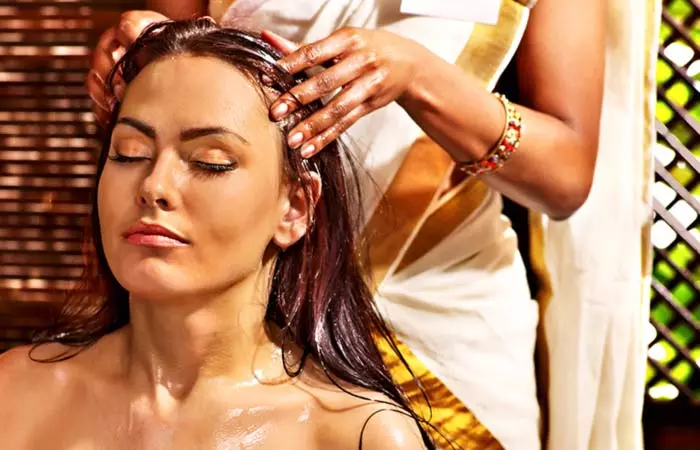
Method
- Take 3-4 tablespoons of your favorite carrier oil, such as olive or coconut.
- To it, add a few drops of your favorite essential oil.
- Heat the oil by pouring it into a zip lock bag and immersing it in hot water.
- Section your hair and start applying the oil from the roots to the tips.
- Once all of your hair is covered in oil, wrap it in a damp, hot towel.
- Let the oil sit for 30-45 minutes, then wash off with shampoo and condition.
How Often
You can treat your hair with this hot oil treatment up to 3 times a week, depending on how dry your hair is. It acts as an intensive conditioner that deeply moisturizes dry hair.
Benefits Of The Hot Oil Treatment
Treating your hair with hot oil opens up your cuticles, allowing for maximum penetration. This allows for the better absorption of nutrients and moisture. Oils also form a protective barrier around your hair shaft, smoothing down the cuticle and preventing moisture loss. Regular hot oil treatments also keep the scalp moisturized and healthy. Oiling regularly also helps with faster hair repair. In a way, hot oil treatments work like natural protein treatments that add an extra protective layer to your hair and boost hair strengthening.
Precautions
Limit the hot oil treatment to once a week if you have oily hair. Oiling greasy hair will help calm down overzealous sebaceous glands, controlling sebum production.
10. Using Henna For Deep Conditioning
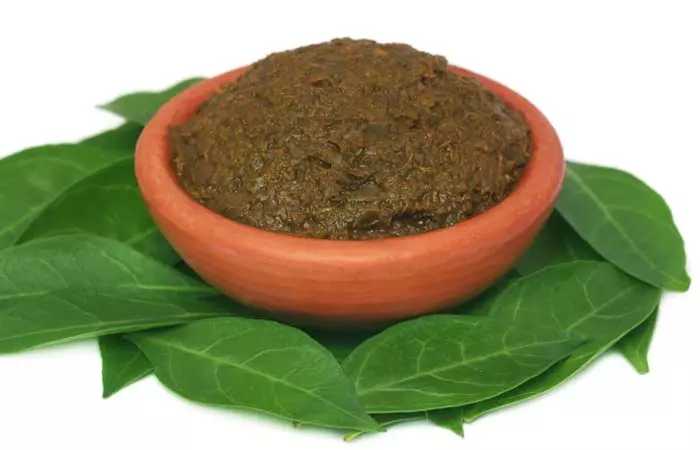
Method
- Steep 3 bags of black tea in 250 ml of boiled water.
- Let the tea cool. To it, add pure henna powder until it gets to a thick consistency.
- To the tea and henna mixture, add 1 egg, 1 cup of yogurt, and 2 teaspoons of lemon juice.
- Apply the mixture to your hair and let it sit for 1 hour.
- Rinse the henna out with shampoo and let your hair air dry.
How Often
You can apply henna to your hair once a month to keep it well-conditioned.
Benefits Of Using Henna
Henna behaves like a natural hair therapy treatment that not only conditions your hair, but leaves your tresses with a gorgeous orange-red color. This deep conditioning and restorative treatment pack is perfect for people who want to cover up their grays with some color, or simply want to add color to their hair with zero damage. Henna has antimicrobial properties, which make it an amazing ingredient for scalp health (8). It also makes your hair soft and manageable while removing the build-up of grease and dirt, making it perfect for oily hair.
Precautions
Conduct a patch test before you apply henna, to check how your skin reacts to it. Henna can cause reactions like inflamed skin, redness, and itching in some people.
11. Banana For Deep Conditioning
Method
- Make a paste of 1 ripe banana by mashing it.
- Add a few drops of coconut oil and a tablespoon of honey to it and mix well.
- Apply this mixture to your hair. Spread evenly from the roots to the tips.
- Leave it on for 30-45 minutes.
- Rinse thoroughly with lukewarm water and a mild shampoo.
How Often
Use this deep conditioning treatment once a week for optimal results.
Benefits Of Using Banana
Bananas are rich in vitamins, magnesium, potassium, and silicon (9), (10). It is widely used in homemade hair masks for its deep conditioning and hair-smoothing properties. Along with coconut oil and honey, it creates an exceptional deep-conditioning, nourishing treatment for your hair.
Precautions
Ensure the banana mixture is smooth and free of lumps to prevent it from getting stuck in your hair. Rinse thoroughly to avoid residue.
Dos
- Deep condition your hair at least once a week.
- Apply heat to your hair by wrapping a hot towel around your hair, or wearing a shower cap while you have the mask/hot oil on.
- Use both protein and moisture hair treatments as one without the other will give you hair that is either too brittle or too frizzy.
- Steam your hair before you apply the treatment to open up your cuticles and give your hair a moisture boost with a hair-spa like experience.
- Concentrate on the ends as they are the oldest and weakest part of your hair.
Don’ts
- Stick to the recommended time periods for best results. Keeping intense conditioners on for longer than necessary can do more harm than good.
- Use a deep conditioner as recommended. Do not leave it in your hair as leave-in conditioners.
- Do not spend a lot of money on store-bought conditioning treatments. DIY hydrating treatments may take a bit longer but they have the same effect and none of the chemicals.
- Make just enough for one use. Storing a DIY treatment for too long may cause it to get spoiled.
Learn how to deep condition your dry, damaged, or fried hair. Click on this video to get tips on how to properly deep condition at home for healthier and stronger hair.
Infographic: 4 DIY At-Home Deep Conditioning Treatments To Try
Healthy hair is a dream that hair issues, such as frizz, damage, and dryness, prevent you from achieving. Deep conditioning treatments hydrate your hair and make it manageable. You can use natural remedies at home to deep condition your hair and reduce damage and dryness. No matter the hair type, the deep conditioning methods discussed in the infographic below may help you achieve smooth and healthy hair. Scroll down and check it out!
Some thing wrong with infographic shortcode. please verify shortcode syntaxLack of moisture can get your hair dry and frizzy. To tackle this issue, you can get your hands on some ingredients available in your pantry to make DIY deep conditioning hair masks for your hair. Ingredients such as aloe vera, shea butter, or castor oil exfoliate dead skin, keep your oil glands in check, and promote hair nourishment. Ensure that you use these restorative treatments according to your hair type, as too much deep conditioning can leave your hair greasy. No matter your hair type, these natural ingredients coupled with some love and care, can help you say goodbye to damaged hair and hello to soft and gorgeous hair!
Frequently Asked Questions
What is the ideal frequency for deep conditioning?
How often you deep condition your locks depends on your hair type. Those with oily hair may need to deep condition their locks once a fortnight. If you have dry hair, you may need to deep condition once or twice a week to maintain moisture, strength, and manageability without over-conditioning.
How can I choose the best deep conditioner for my hair type?
A hydrating formula works best for dry hair. For fine strands, choose a lightweight option, and for damaged, frizzy hair, use protein-rich conditioners.
What is the difference between a conditioner and a deep conditioner?
A regular conditioner only hydrates the outer layer of your hair, while a deep conditioner penetrates your hair strand completely, providing more lasting results.
Do you rinse out a deep conditioner with cold water?
Yes. Rinsing out deep conditioner with cold water helps seal the hair cuticles and adds shine to your locks.
Do you deep condition before or after washing hair?
You should deep condition your hair after washing it to allow the conditioner to absorb further into the hair shaft as the cuticles are open after cleaning.
Illustration: At-Home Deep Conditioning Treatments For Damaged Hair
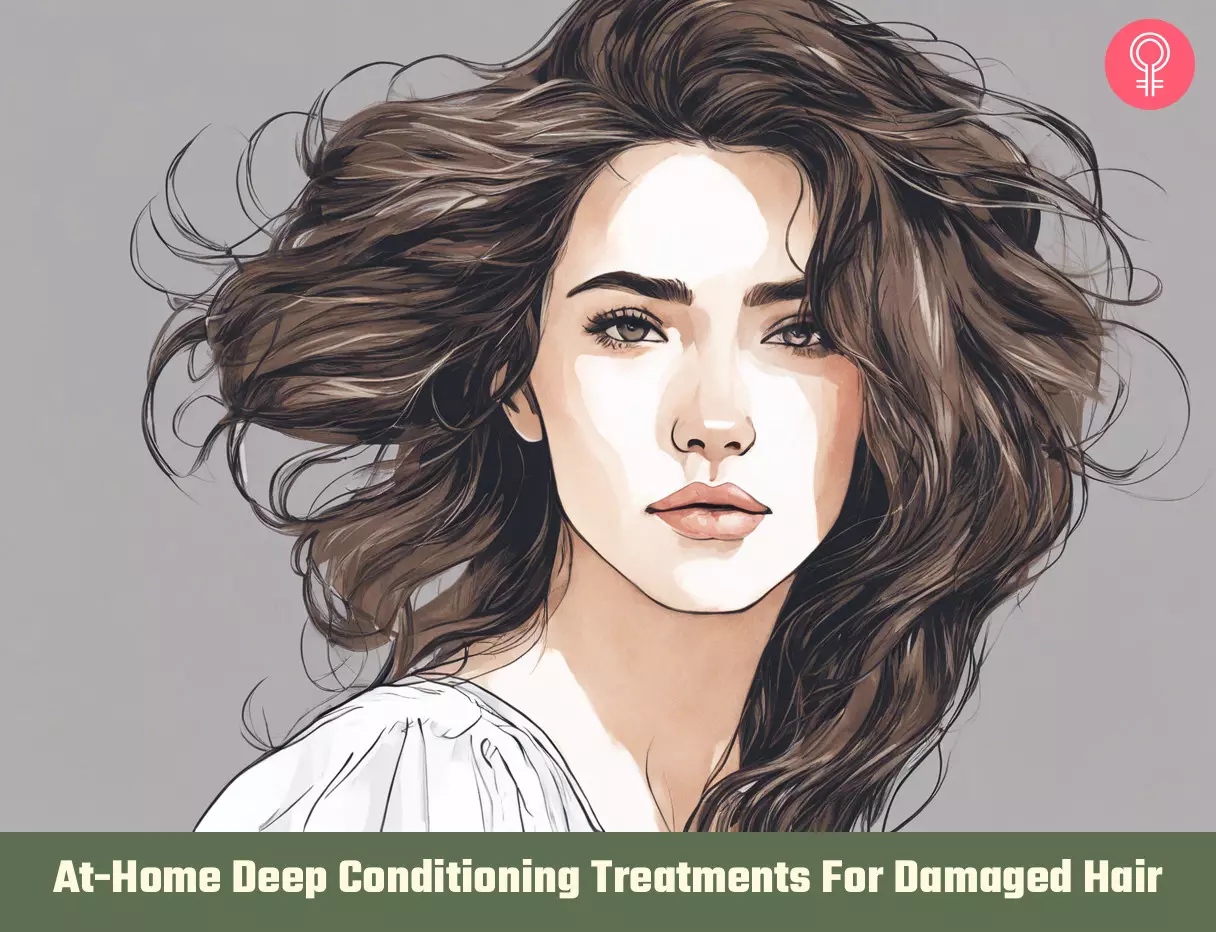
Image: Stable Diffusion/StyleCraze Design Team
Personal Experience: Source
StyleCraze's articles are interwoven with authentic personal narratives that provide depth and resonance to our content. Below are the sources of the personal accounts referenced in this article.
i. Hair | how i deep conditionhttps://freshlengths.blogspot.com/2014/04/hair-how-i-deep-condition.html
References
Articles on StyleCraze are backed by verified information from peer-reviewed and academic research papers, reputed organizations, research institutions, and medical associations to ensure accuracy and relevance. Read our editorial policy to learn more.
- The Role of Moisturizers in Addressing Various Kinds of Dermatitis: A Review
https://www.ncbi.nlm.nih.gov/pmc/articles/PMC5849435/ - Melaleuca alternifolia (Tea Tree) Oil: a Review of Antimicrobial and Other Medicinal Properties
https://www.ncbi.nlm.nih.gov/pmc/articles/PMC1360273/ - Topical Probiotics: More Than a Skin Deep
https://www.ncbi.nlm.nih.gov/pmc/articles/PMC8955881/ - A comprehensive overview of functional and rheological properties of aloe vera and its application in foods
https://www.ncbi.nlm.nih.gov/pmc/articles/PMC7925795/ - Naturally Occurring Hair Growth Peptide: Water-Soluble Chicken Egg Yolk Peptides Stimulate Hair Growth Through Induction of Vascular Endothelial Growth Factor Production
https://pubmed.ncbi.nlm.nih.gov/29583066/ - Honey in dermatology and skin care: a review
https://pubmed.ncbi.nlm.nih.gov/24305429/ - Anti-Inflammatory and Skin Barrier Repair Effects of Topical Application of Some Plant Oils
https://www.ncbi.nlm.nih.gov/pmc/articles/PMC5796020/ - Antimicrobial Efficacy of Henna Extracts
https://www.ncbi.nlm.nih.gov/pmc/articles/PMC3273913/ - Bananas ripe and slightly ripe raw
https://fdc.nal.usda.gov/fdc-app.html#/food-details/1105314/nutrients - The comparative absorption of silicon from different foods and food supplements
https://www.ncbi.nlm.nih.gov/pmc/articles/PMC2744664/
Read full bio of Kari Evans
Read full bio of Arshiya Syeda
Read full bio of Ramona Sinha
Read full bio of Monomita Chakraborty





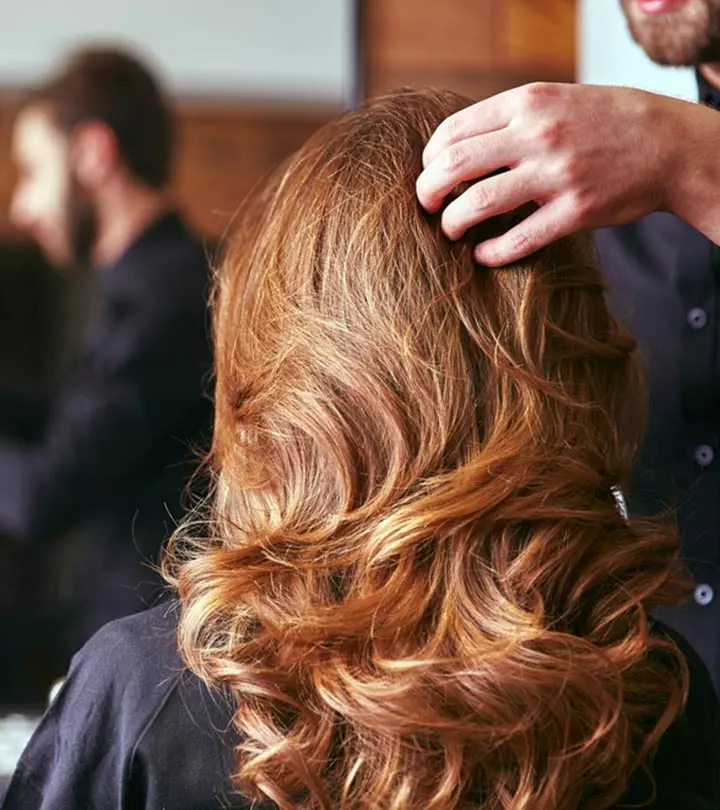

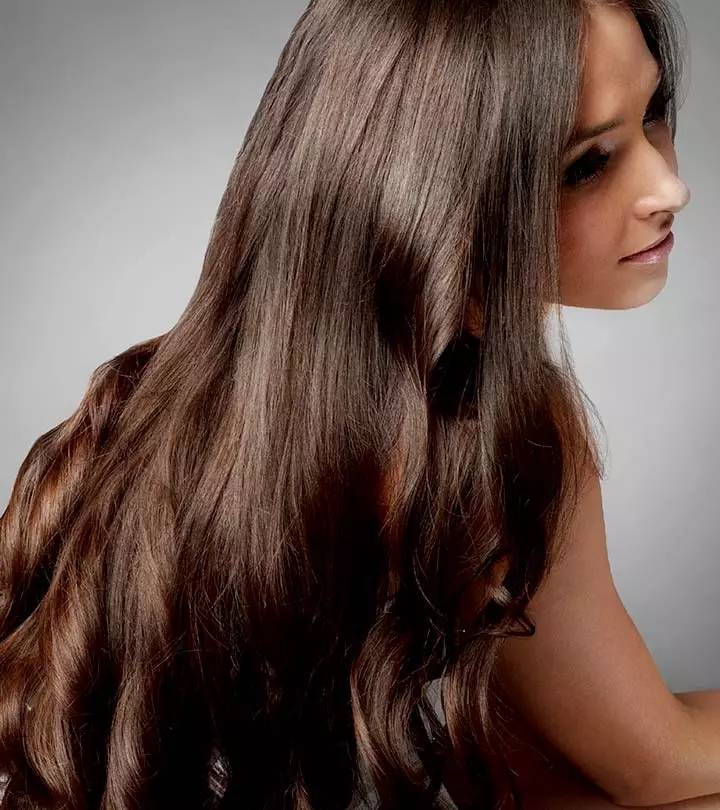
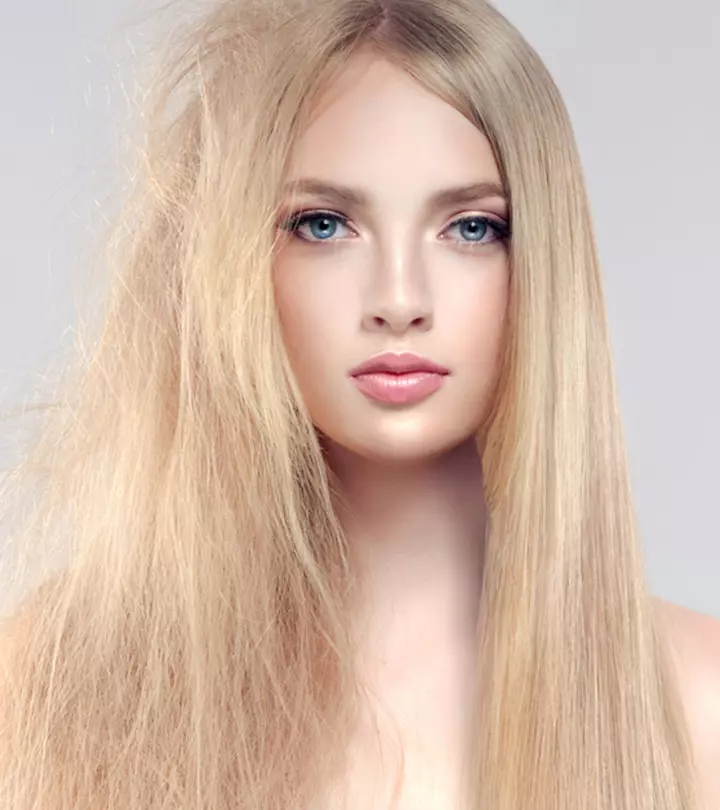

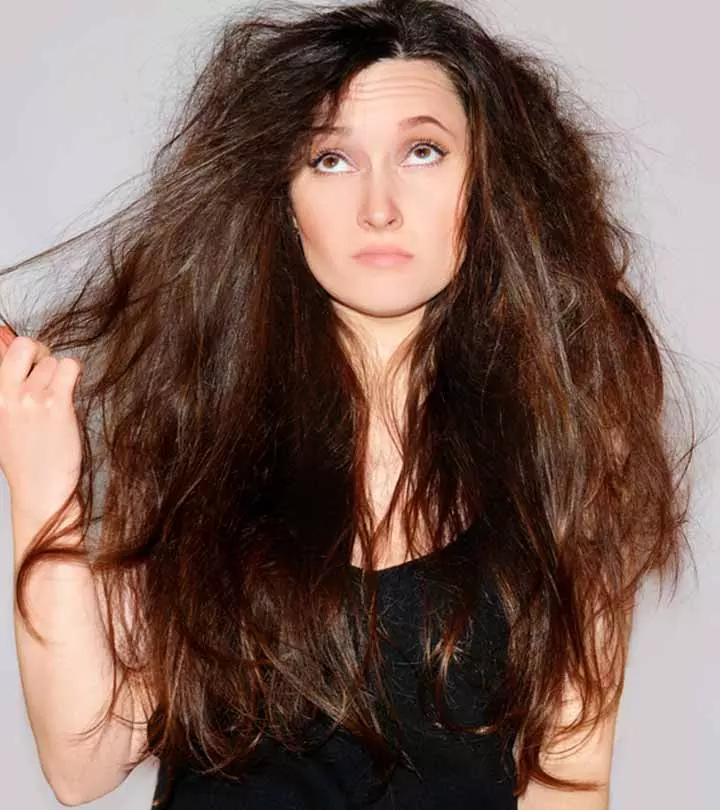
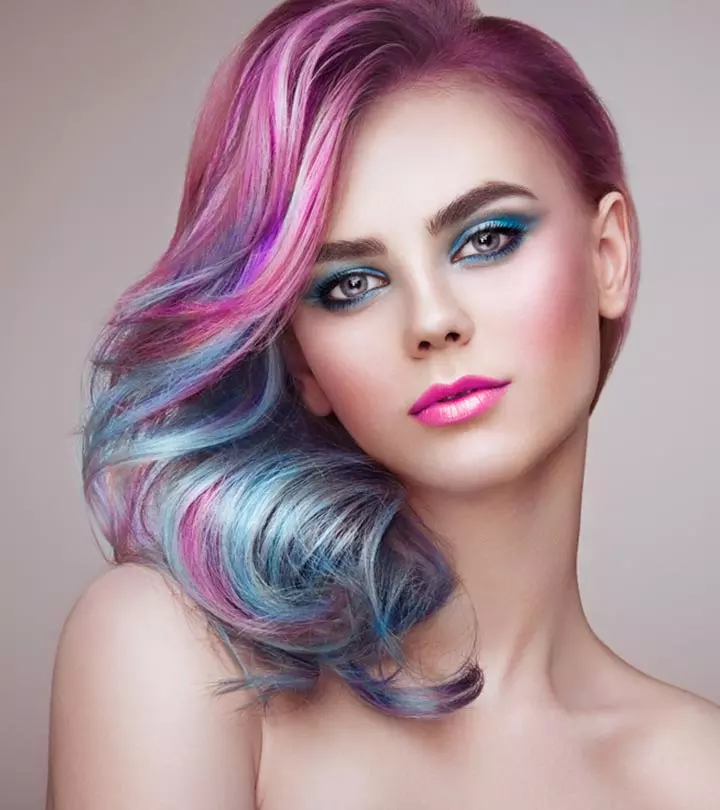
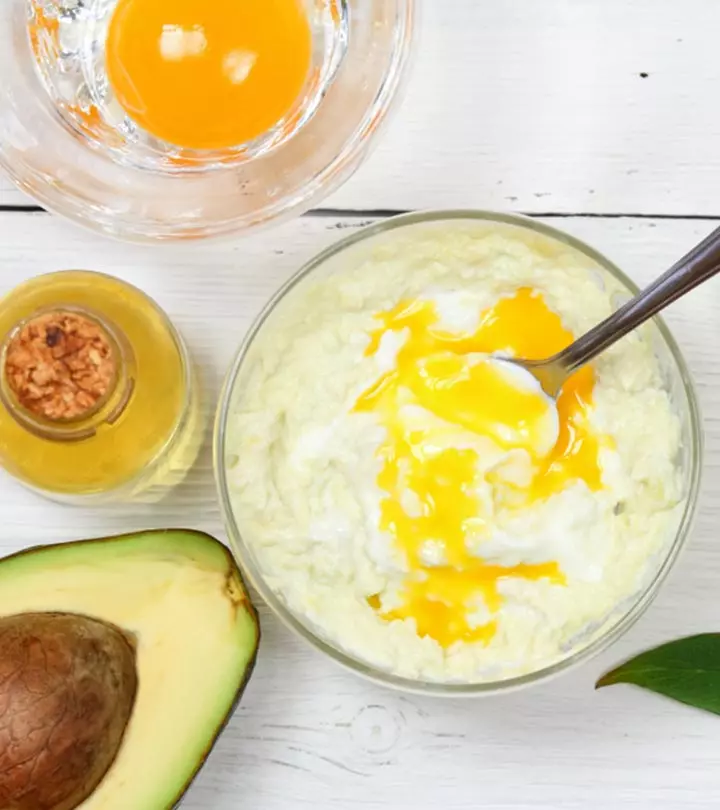
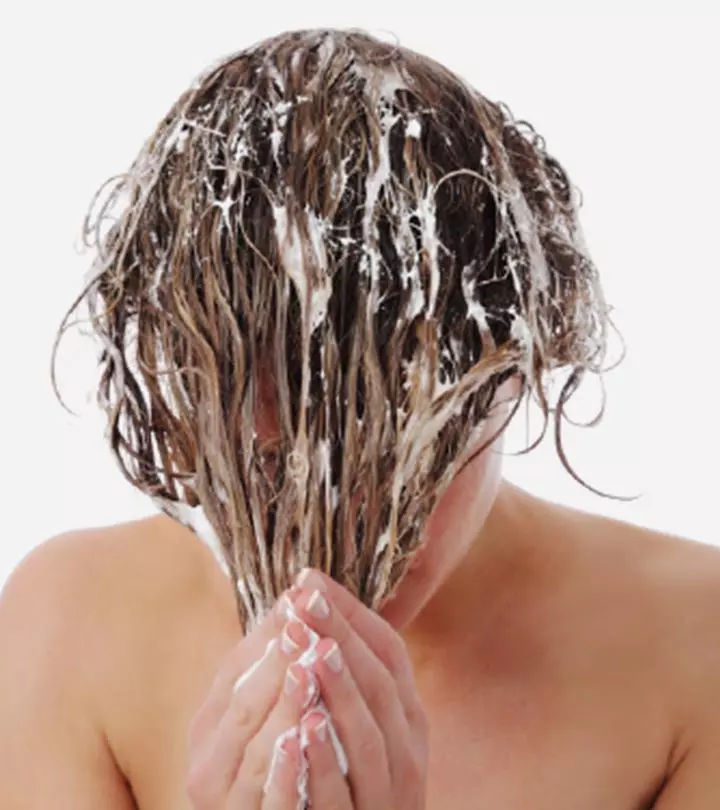
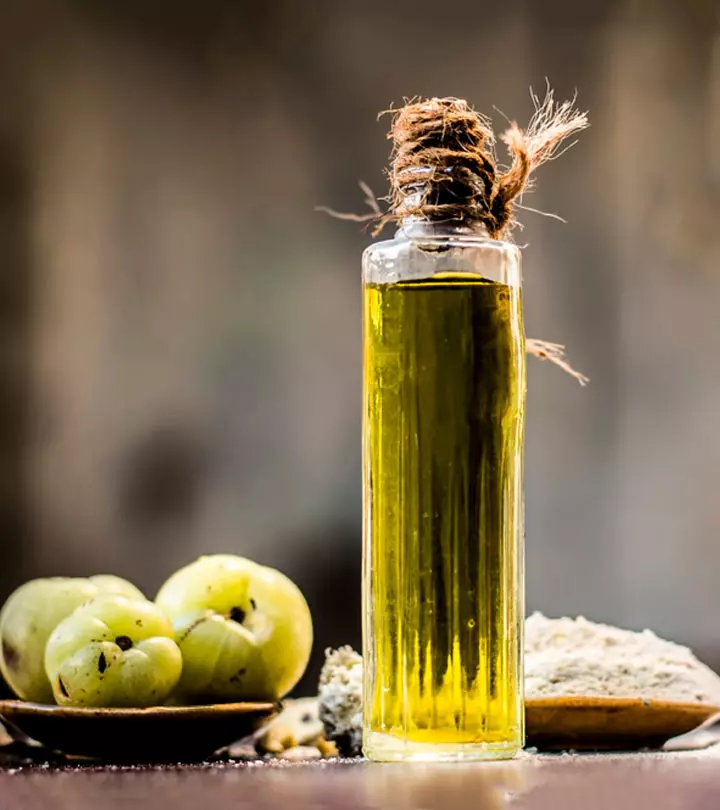
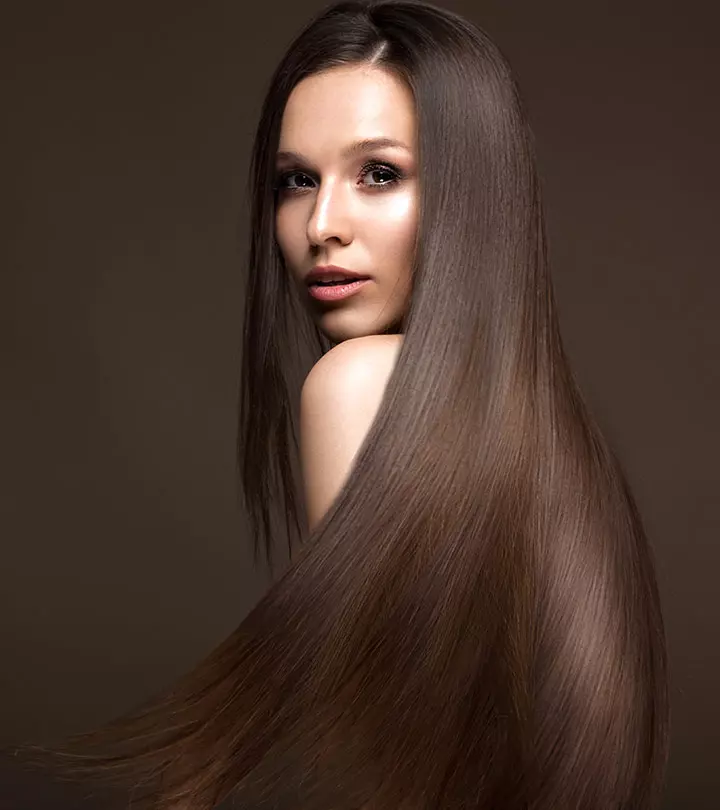
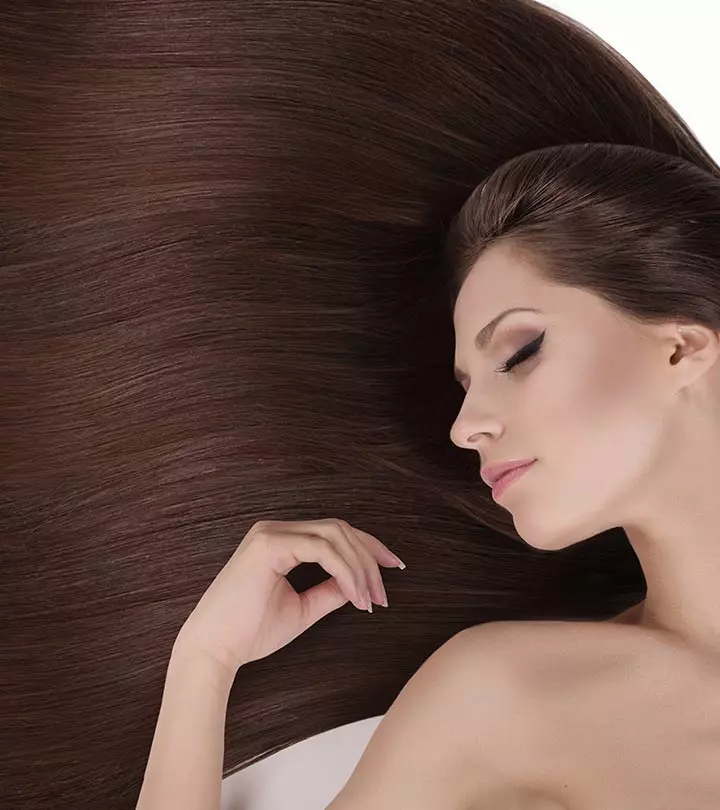

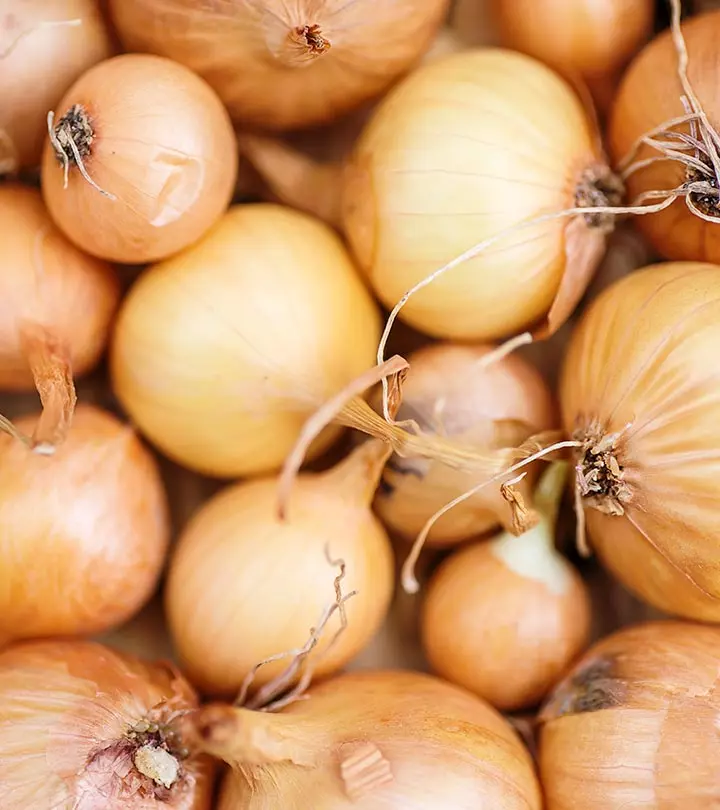

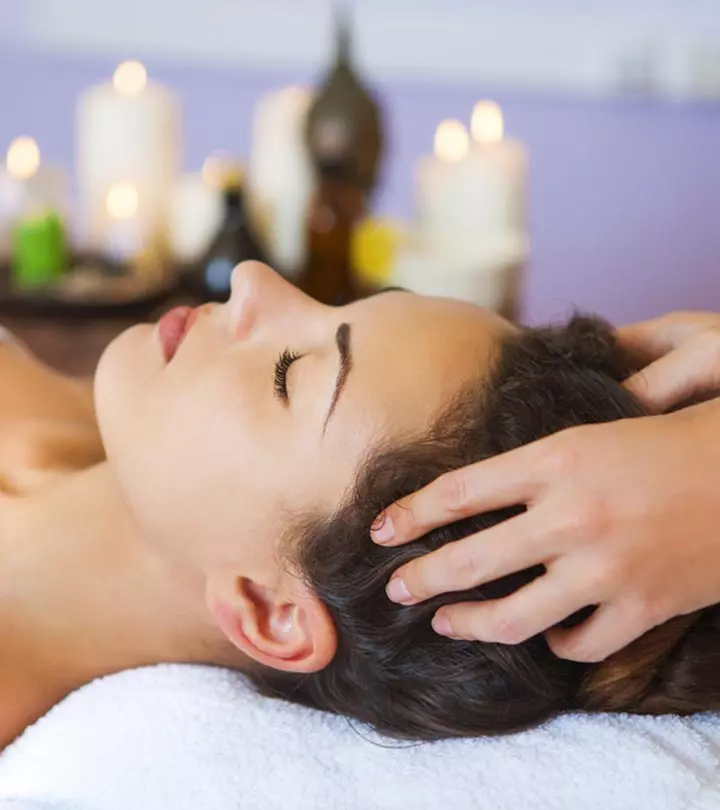
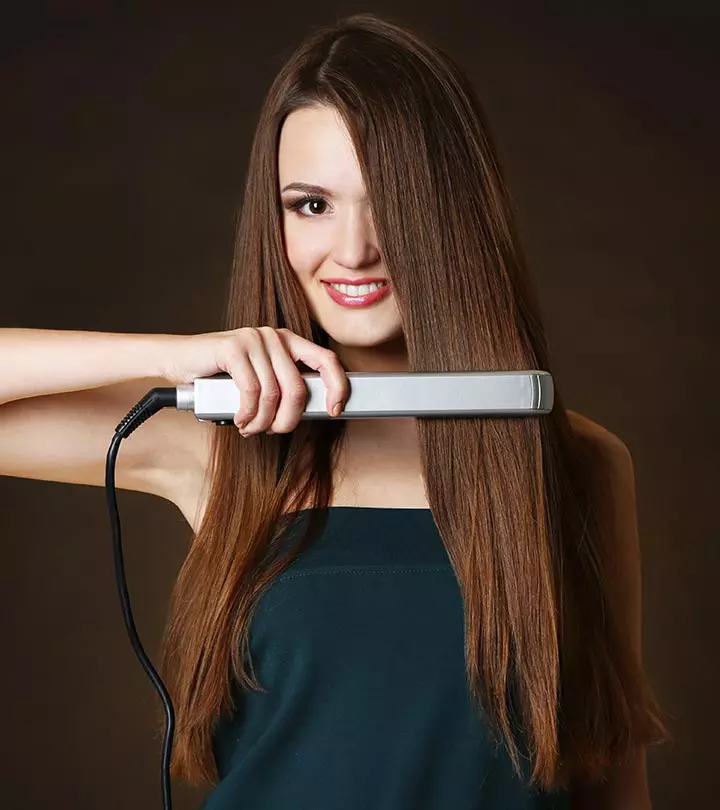
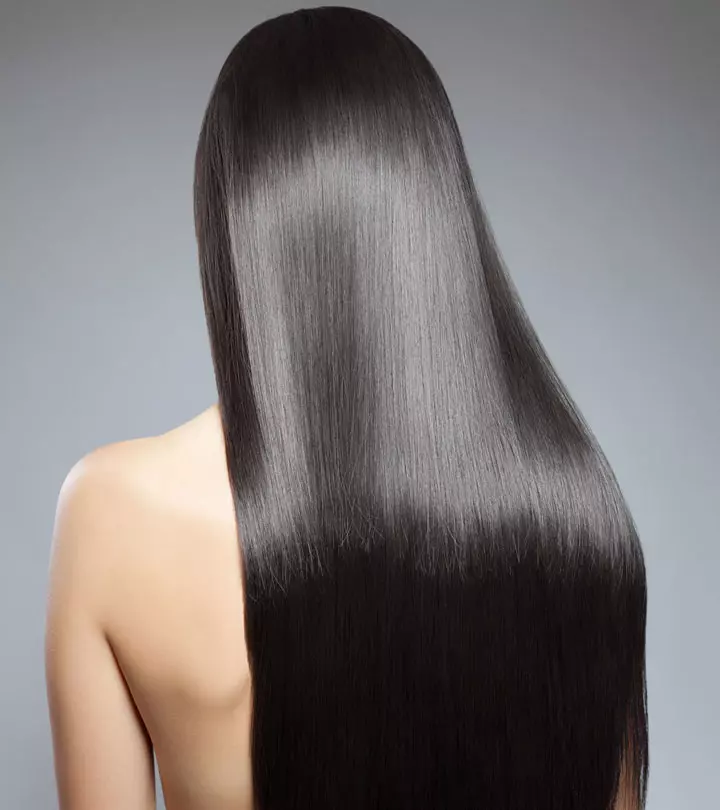
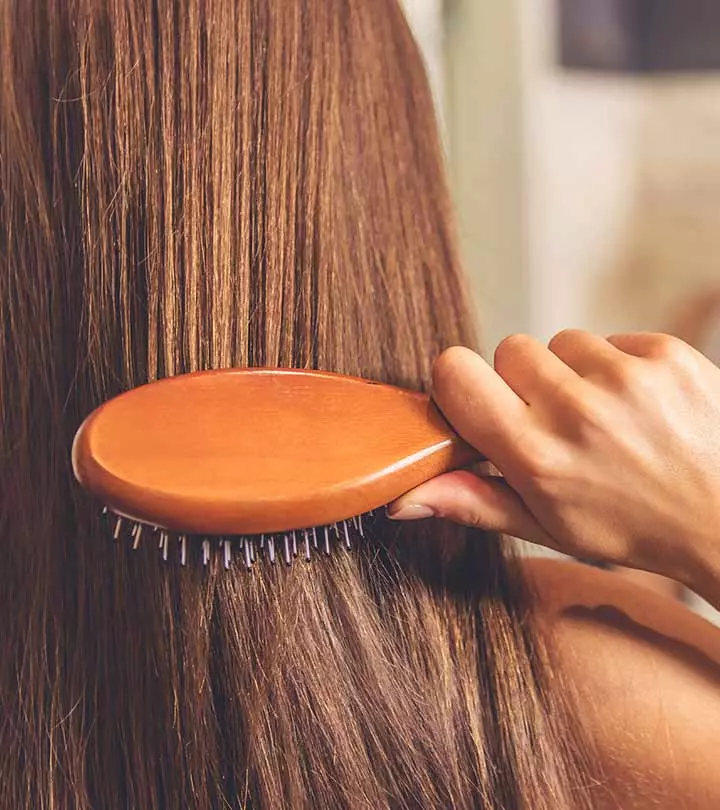
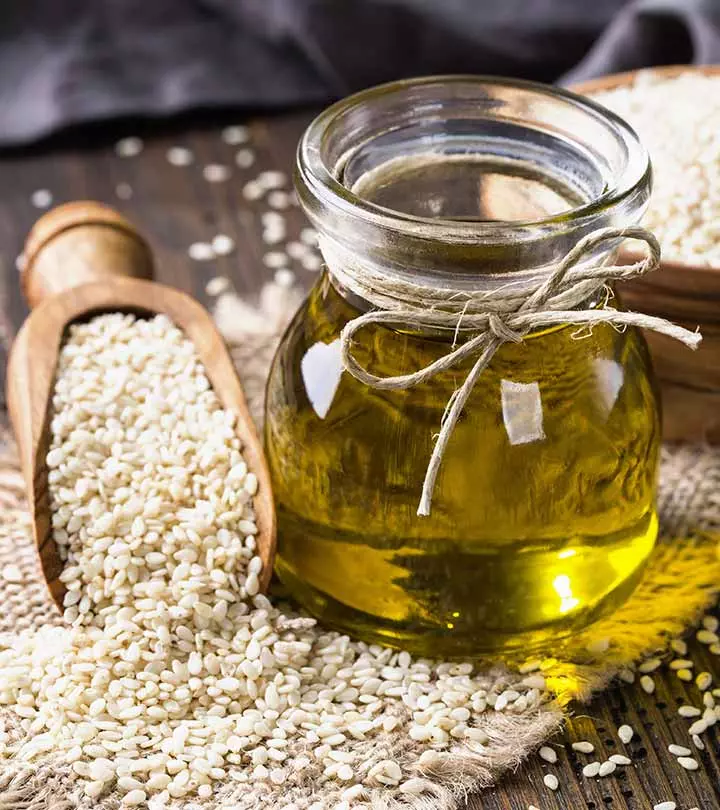

Community Experiences
Join the conversation and become a part of our empowering community! Share your stories, experiences, and insights to connect with other beauty, lifestyle, and health enthusiasts.